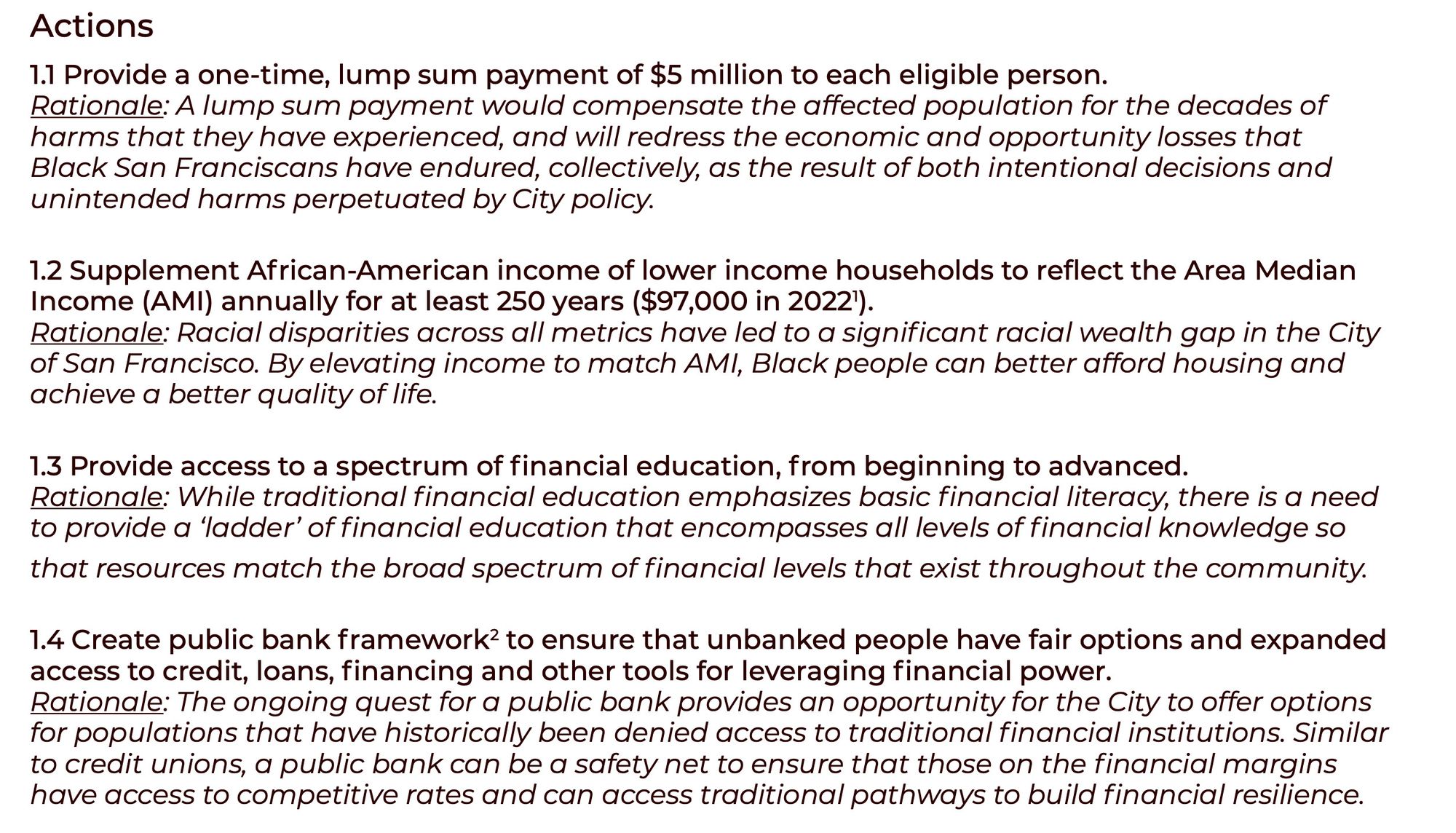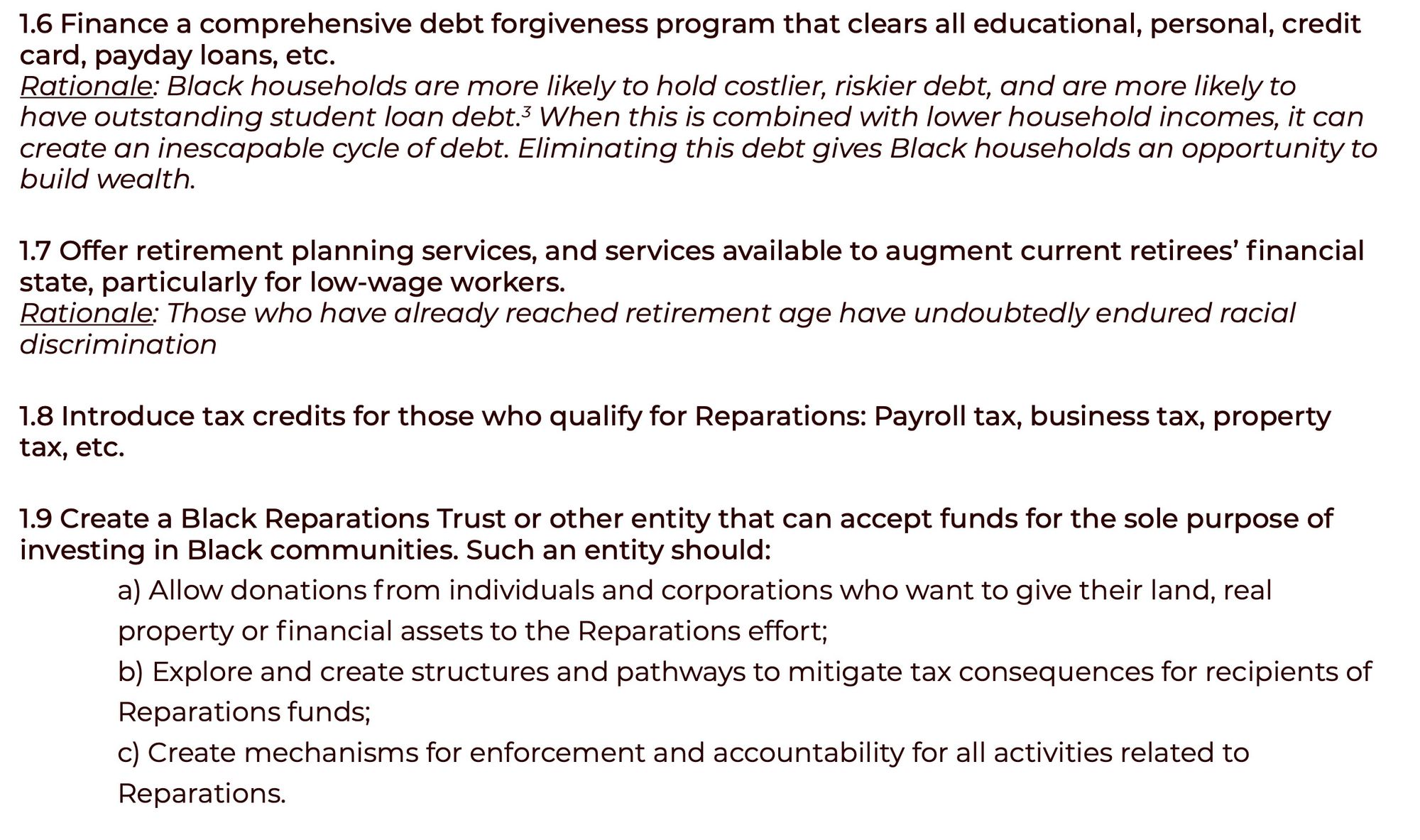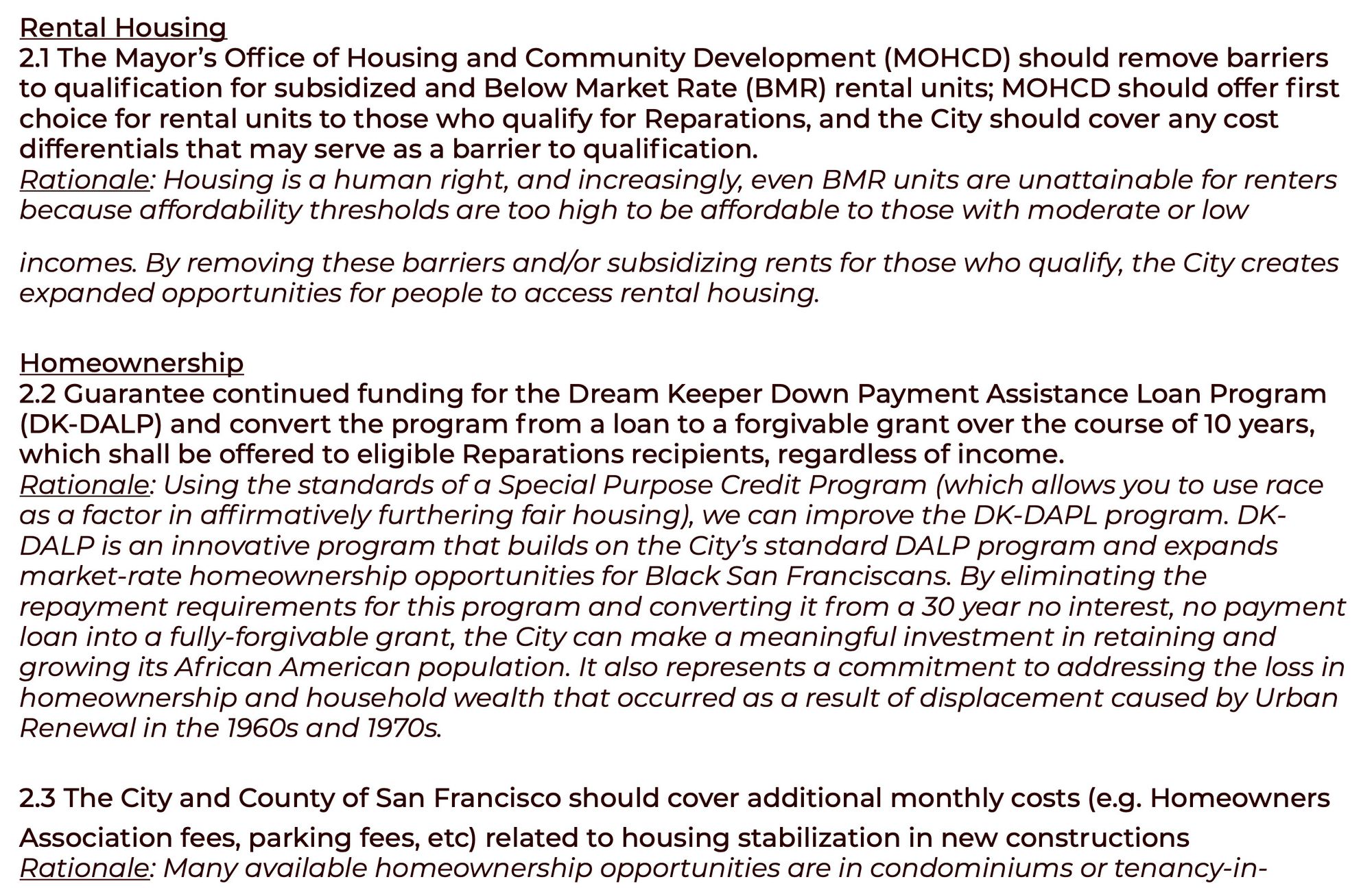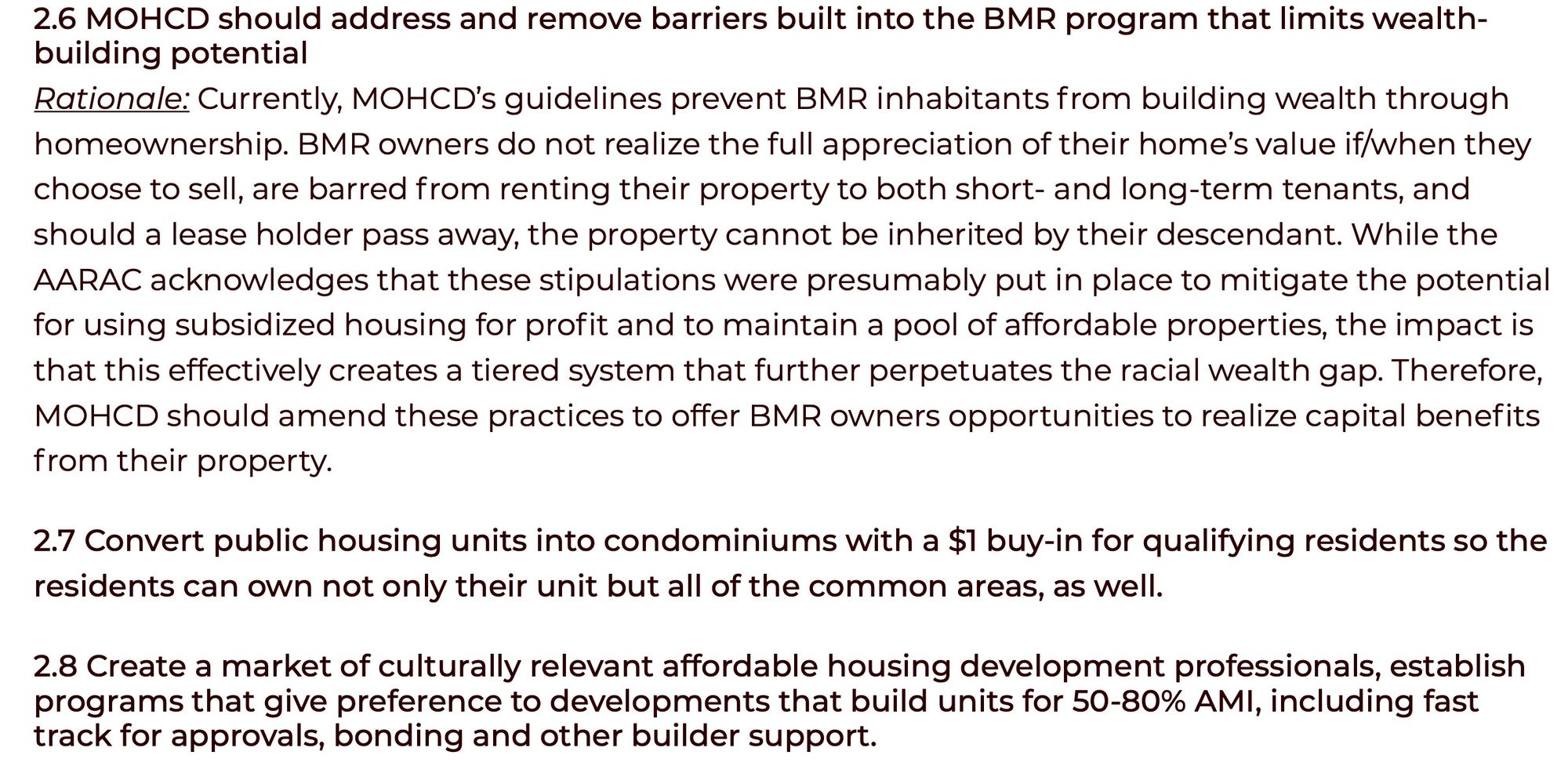The SF NAACP came out on record against the proposed $5 million per Black SF resident proposal in the current list of reparations recommendations, and the Board of Supervisors approved a draft of that document that won’t be finalized until September.
Tuesday’s SF Board of Supervisors meeting held the first board-level hearing on the proposed recommendations for reparations for Black San Franciscans, a proposal document that has drawn international media attention with headlines blaring over its inclusion of a $5 million per Black San Franciscan component. Tuesday’s hearing was just to approve the initial draft from the SF African American Reparations Advisory Committee (AARAC), which will not make its final recommendations until June, and the board does expect to vote on it until September 19.
But as 48 Hills points out, the headlines over the $5 million are completely reductive of what’s actually happening here. The $5 million proposal is just one of 111 recommendations AARAC has put forward. But it’s the one much of the media fixated upon, in coverage rich with race-baiting dog whistles..
Supervisor Shamann Walton, who’s led the reparations efforts, said Tuesday that he and the committee members “have received not only some of the most racist and disgusting commentary, but also actual threats on the reparations board." And he insisted, “We are here to learn about all of the recommendations. Not just one, but all.”

As seen above (and we’ll embed a few more of these throughout this post) there are many recommendations beyond that $5 million proposal. “There was a commitment made to the Black community for 40 acres and a mule that was never kept,” Walton added. “This conversation has been going on since that tragedy."
It’s true there was not chattel slavery in California. But as KRON4 points out, “Advocates say that view ignores a wealth of data and historical evidence showing that long after U.S. slavery officially ended in 1865, government policies and practices worked to imprison Black people at higher rates, deny access to home and business loans and restrict where they could work and live.”
Beautiful images from historic hearing on reparations for San Francisco’s African-American community. Can’t wait to get to work to implement the 111 report recommendations. pic.twitter.com/HCR391Ju5g
— Hillary Ronen (@HillaryRonen) March 15, 2023
Yet while the meeting was in progress, the San Francisco NAACP put out a press release opposing the $5 million payments. “We strongly believe that creating and funding programs that can improve the lives of those who have been impacted by racism and discrimination is the best path forward toward equality and justice,” said a quote in that press release attributed to former supervisor and current SF NAACP president Rev. Amos Brown. (The press release did not come from the SF NAACP, but from Sam Singer’s Singer Associates Public Relations.)
That said, Brown did speak at Tuesday’s hearing and did not reference this position. Though he may have been hinting at it. “Support reparations today. And work out the particularities later on,” Brown said at the hearing. “Support reparations in principle, and leave the particularities to the experts and those who were the engineers.”
The board did support reparations by voting unanimously to approve the draft plan, which again, is a non-binding draft of what may eventually be approved as reparations for historic racial injustices in San Francisco.

“Black children, even in San Francisco, were not allowed to be taught, and yet Black families paid taxes for the education of other children,” Walton pointed out. He also referenced previous city real estate laws that he said declared “No property at any time should be sold, coveted, rented or leased to any person or persons not of the Caucasian race.”
“This is an ecosystem of reparations. It’s not just a one-dimensional action,” SF Human Rights Commission director of economic rights Brittni Chicuata explained, describing other proposals that include medical and psychological care, legal services, public apologies, “guarantees of non-repetition” of previous injustices.

And yes, $5 million for each qualifying Black San Franciscan is a huge ask during deficit times. But AARAC chair Eric McDonnell told the board, “The charge of the committee was not to do a feasibility study. The charge was to chronicle the harm and determine the value. Period. What follows is at your discretion.”
The board was enthusiastically receptive to all 111 recommendations, perhaps largely because they did not have to pick and choose between any of them.

“I am a product of reparations,” Supervisor Dean Preston said, describing post-Holocaust reparations. “In the early 1950s, my family received reparations from the German government. And it was the funds they received from the German government that are actually what enabled my grandparents to start a business in New York City.”
Supervisor Matt Dorsey added, “If we ever wanted to enshrine reparations into our city charter as a budget set-aside, I would gladly fight for it.” And referring to the 400-year history of American slavery, he said, “If there is a charter amendment, there will be a sunset date. In 400 years.”

Again, the board didn’t have to commit to anything Tuesday, just approve a draft that will likely be completely retooled. But clearly there is City Hall appetite for reparations, and therefore turf wars already forming over who’s going to get what. AARAC will meet monthly until they finalize the recommendations for that, and you can see their meeting schedule online.
Related: San Francisco Supervisors Discuss Reparations Proposals and That $5M Lump Sum Idea [SFist]
Image: @HillaryRonen via Twitter

